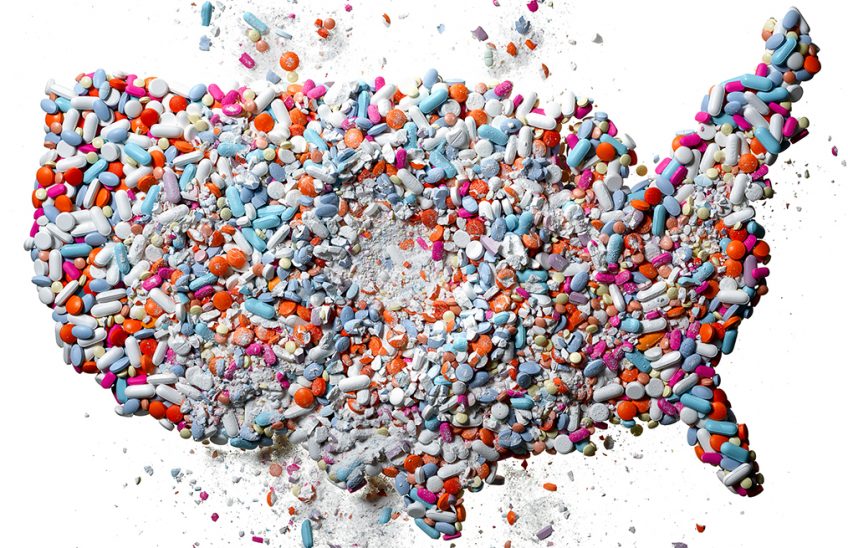
For years, cannabis has been stigmatized as a gateway drug. Now, evidence suggests it may be an exit drug, and a strong weapon for combating the opioid crisis.
The opioid crisis seems to be getting worse each day. Currently, 115 Americans die everyday from opioid overdoses, according to the Mississippi State Department of Health. Their website also states that opioid overdose rates have nearly doubled since 2000, with 33,000 Americans dying in 2015.
With such an undeniably systemic issue, many ask who is responsible and how do we fix the problem?
The Opioid Fix Is In
Last month, Purdue Pharma filed for Chapter 11 bankruptcy. The filing came as a result of a $10 billion settlement the company made with 24 states. State lawsuits alleged various criminal acts committed by Purdue Pharma in their effort to market and sell OxyContin.
According to STAT, Purdue Pharma executives aggressively marketed OxyContin, and other opioids, despite knowing that the drug was highly addictive and fatal when abused.

To make matters worse, Vice News reported that Purdue Pharma will plead guilty in a federal case after admitting that they sought to market OxyContin to over 100 healthcare providers who the company had good reason to believe were diverting opioids.
Purdue Pharma’s guilty plea is especially disturbing as the federal government, mostly via the Drug Enforcement Agency (DEA) and the Department of Justice (DOJ), has taken steps recently to ensure compliance and prevent diversion within the healthcare industry.
Reporting on the original bankruptcy filing in September, Vice News and STAT both explain that former president and chairman of Purdue Pharma, Richard Sackler, continued to aggressively market Oxycontin despite objections from those around him. At one point, he allegedly stated that he wanted OxyContin to bury the competition.
Holding the Right People Accountable
After a $10 billion settlement and a federal case that will result in Purdue Pharma having to pay a $3.5 billion penalty, $2 billion in criminal forfeiture, and $2.8 billion to resolve criminal liability under the False Claims Act, one would assume justice has been served. Unfortunately, that isn’t exactly the case.
According to a DOJ release from last week, the bankrupt Purdue Pharma will continue to exist as a public benefit company. Essentially, Purdue will be owned by a trust that will govern the company to benefit the American public. However, this exact kind of arrangement is what many democratic legislators have advised U.S. Attorney General William Barr against.
On the upside, the restructured Purdue Pharma will not include the involvement of the Sacklers.
The Sacklers are the former owners of Purdue Pharma. Their handling of OxyContin since 1996 has sparked widespread backlash.
Although $3 billion of the $10 billion settlement will come from the Sacklers themselves, it appears some favor criminal charges brought against the Sacklers over cash settlements the powerful family will ultimately be able to write off.
Vice News reports that the settlement will notably not force the Sacklers to admit to any wrongdoing.
Conversely, many states, such as New York, have vowed to sue the Sacklers in court. However, compensation seems an inadequate form of justice to the families of over 450,000 people who have died from illicit and prescription opioids over the last 20 years.
In addition, states like New York and Massachusetts are uncovering just how insignificant $3 billion may be to the Sacklers. New York Attorney General Letitia James announced that the Sacklers had $1 billion in undisclosed wire transfers from Purdue. Offshore bank accounts and shell companies have helped cloak the true net worth of the Sacklers.
Solving the Problem
Ultimately, the Sacklers may end up paying less than their fair share for hundreds of thousands of deaths. Purdue Pharma will still live on despite confessing to those deaths. But there may be another way to grant restitution.
Recently, Weedmaps launched a website called The Exit Drug. The Exit Drug is also a documentary that explains how cannabis can serve as an effective method to avoid addiction, reduce overdoses, alleviate withdrawals, and prevent relapses.
The website notes that the molecules found within cannabis plants have shown to lessen opioid withdrawal symptoms in animals.
To further substantiate this claim for humans, the website explains, “high doses of cannabis can produce heavy sedation and long-lasting sleep, which is useful to addiction treatment facilities that commonly use medical sedation to get patients through the awful first few days of opioid withdrawal.”
Weedmaps also notes that CBD, even a small dose, can help inhibit the anxiety opioid addicts feel during withdrawal. That anxiety often leads to drug cravings and relapses.
Unfortunately, opioid withdrawal will increasingly leave an addict feeling negative and anxious as the effects of the opioid wear off. Cannabis can serve as a gentle mood lifter and stabilizer that will allow a recovering addict to experience feelings of euphoria during the withdrawal process and provide a more positive outlook during rehabilitation.
These stabilizing effects of cannabis on opioid users have been demonstrated in animal and human trials. Most recently, Weedmaps claims that researcher Yasmin Hurd at Mt. Sinai Hospital in New York has proven that just one dose of CBD can alleviate anxiety symptoms in opioid users. Even staunch opponents of cannabis legalization will relent that a single dose of CBD is minimal. Currently, CBD is legal for medicinal purposes in all 50 states.
Coming off Purdue Pharma’s collapse and a further plunge into the opioid crisis, cannabis may indeed have a future as an exit drug.
By Thomas O’Connor
Trump and DEA: Cracking Down on Opioids, Warming up to Cannabis



Leave a Reply